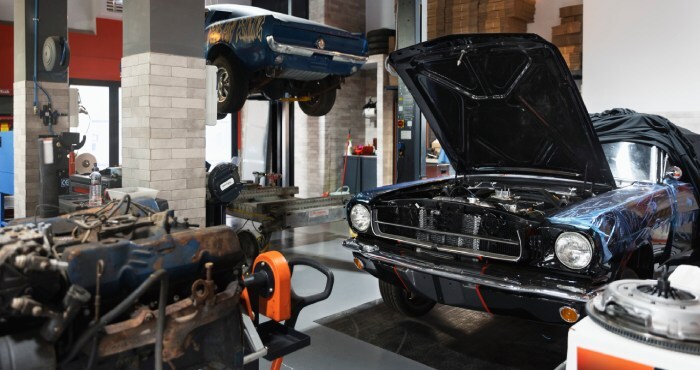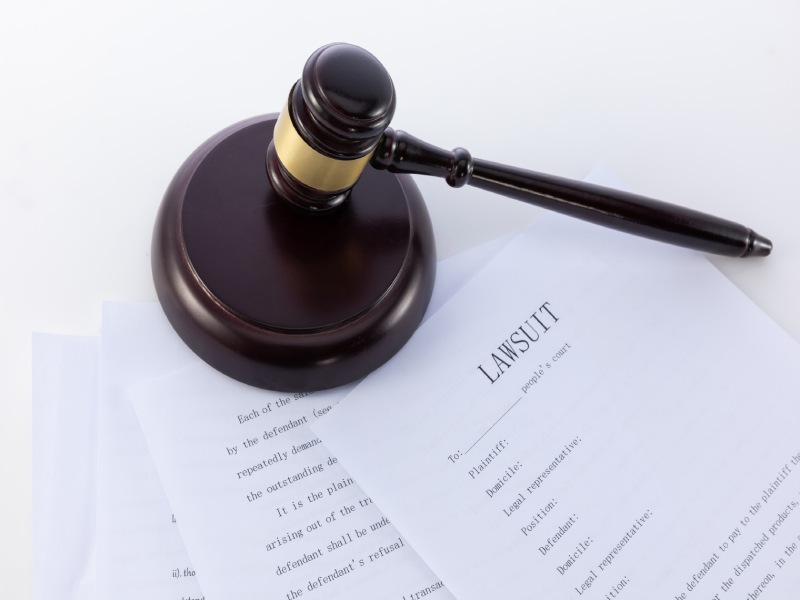Texas Lemon Law: Protect Your Rights with Expert Legal Assistance
Buying a car should be an exciting journey—after all, it’s often one of the biggest purchases you’ll make. But what happens when that shiny new ride turns out to be more of a headache than a dream? If you’ve ever found yourself stuck with a vehicle that just won’t cooperate, you’re not alone. Enter the Lemon Law Lawyer Texas, your ally in tackling the troubles that come with defective cars.
This law offers protection and peace of mind, making sure you’re not left to deal with the financial fallout of a faulty vehicle on your own. In this article, we’ll break down what the Lemon Law is all about, how it works, and what steps you need to take if you find yourself in this tricky situation. Let’s dive into the details and ensure your rights are safeguarded!
The lemon law in Texas protects consumers who purchase vehicles that have significant defects, allowing them to seek remedies such as repairs, replacements, or refunds. Under this law, if a vehicle has a serious defect that cannot be fixed after a reasonable number of attempts, the owner may be entitled to compensation from the manufacturer.

Overview of the Lemon Law in Texas
The Texas Lemon Law serves an important purpose: it protects consumers from financial distress caused by faulty vehicles that fail to meet quality standards. When you purchase or lease a new car, you’re making a pact; you expect it to operate as promised. If it doesn’t and develops mechanical issues within the first two years or 24,000 miles—whichever comes first—you have rights under this law.
This law mandates that manufacturers must address defects satisfactorily, either by repairing the vehicle, replacing it, or issuing a full refund. Imagine you’ve bought your dream car only to discover persistent engine trouble or faulty brakes. Instead of leaving you helpless and frustrated, the Texas Lemon Law steps in to ensure you’re not financially burdened by these defects.
It’s essential to note that merely experiencing problems isn’t enough; the law outlines specific procedures for a claim to be successful.
If your vehicle has been in for repairs several times and still shows no improvement, you’ll need documentation to support your case. Records from repair attempts serve as vital evidence in demonstrating that the manufacturer hasn’t upheld their end of the bargain. This process can seem daunting, but understanding the legal framework makes it manageable.
Think of the Lemon Law like a safety net; it’s there to catch you when life hands you a sour lemon of a car! But remember, you’d need to jump through certain hoops to access that safety net.

To benefit from these protections effectively, consumers should familiarize themselves with their rights and responsibilities under the Lemon Law. You will need to notify the manufacturer within a specified timeframe after reporting any defect. Documenting all interactions related to your vehicle’s issues lays groundwork for a stronger case.
Furthermore, statistics suggest many consumers unknowingly forfeit their rights by failing to understand these procedural requirements. Thus, having an expert legal assistant who specializes in these cases can prove invaluable in navigating through the nuances quickly and effectively.
Understanding these elements is crucial for asserting your rights and ensuring fair treatment when dealing with defective vehicles. Transitioning into what vehicles qualify under this legislation helps further clarify how consumers can protect themselves.
Eligible Vehicles Under Texas Lemon Law
Not every vehicle is covered under the Texas Lemon Law. Knowing the specific categories can make all the difference if you ever find yourself dealing with a lemon. The law aims to protect buyers from defective products. Eligible vehicles typically encompass various new and used forms of transportation. Each category has its requirements, but they all share a common theme: defects that seriously impact use, safety, or value.

Eligible Vehicles
- New Cars: If you’ve bought a new car that exhibits significant defects affecting its usability, safety, or overall value, you could be eligible for protection under this law.
- Trucks: Similar to new cars, trucks must also showcase defects within the designated eligibility period to qualify for lemon status.
- Motorcycles: New motorcycles are included too, provided they display covered defects that impair their operation or safety.
- RVs (Recreational Vehicles): The law applies to Recreational vehicle (RVs), focusing specifically on their drivetrain and chassis—the components crucial for their safe operation.
- Leased Vehicles: Even leased vehicles can fall under Texas Lemon Law, as long as they are new and show defects within the specified time frame.
To put it into perspective: Imagine purchasing a brand-new Ford F-150 in 2023 and suddenly facing serious transmission issues within just 18 months of ownership. In this scenario, your rights would likely be protected under the Lemon Law because the defect fundamentally compromises the truck’s performance and reliability.
With an understanding of which vehicles qualify established, it’s crucial to explore what steps you should take when confronting these unfortunate circumstances.

Steps to File a Lemon Law Claim
Step-by-Step Guide
The first step in filing a Lemon Law claim is to notify the manufacturer. This isn’t simply a casual conversation; it needs to be formal and precise. Writing a notification letter serves as both an official record and a channel through which you communicate the defect you’ve encountered with your vehicle.
In this letter, include clear details about the issues you’re facing—be specific about what’s wrong and when these problems occurred. Additionally, make sure to mention any previous repair attempts you have made, ensuring that the manufacturer is fully aware of your efforts to resolve the situation.
Remember, clarity is key. The more precise you are in outlining your concerns, the easier it will be for them to understand and address your issue.
Once you’ve sent off that notification, it’s time to allow for repairs. This step is essential because manufacturers often want the chance to fix their vehicles before any further action is taken. Think of it as giving them an opportunity to remedy their oversight—a chance that can lead to a resolution without escalating the matter.

Typically, manufacturers are given three to four attempts at fixing the defect before you consider moving forward with your claim. It’s wise to keep track of each instance you allow them to attempt a repair; noting dates, services performed, and outcomes will vastly improve your case should it become necessary to escalate further.
This three-to-four repair attempts guideline ensures that you remain within reasonable expectations while also holding the manufacturer’s feet to the fire regarding their responsibilities.
If after these reasonable attempts your vehicle still isn’t operating as it should, it’s time to file a formal complaint with the Texas Department of Motor Vehicles (DMV). In this stage, you’ll need documentation of every communication with the manufacturer—the initial notice you sent, all repair receipts, and any correspondence during this timeframe should be meticulously compiled.
This documentation acts like your armor; it substantiates your claims and makes it clear that you’ve done everything possible on your end before seeking legal recourse. Each piece of paper builds upon your argument that your vehicle indeed qualifies for Lemon Law protection.
Proper documentation can significantly support your claim. Think of it as an emphasis on having your bases covered; if things don’t go as planned later on, you’ll be glad you were thorough at this juncture.
Following these steps may seem straightforward, but they are indispensable pathways toward making sure you have taken appropriate action before proceeding further. From here, we can assess what kind of documentation will strengthen your position in this process.

Necessary Claim Documentation
Documentation is pivotal for a successful Lemon Law claim. Without proper records, proving your case can be as daunting as extracting information from a stubborn car engine. Therefore, keeping detailed records of all communication with the manufacturer and dealer is essential. You must also retain all repair invoices and receipts. These documents serve as the backbone of your claim, providing factual evidence to demonstrate the recurring issues you’ve faced with your vehicle.
Essential Documents
- Purchase or Lease Agreement: This document serves as proof of ownership or lease of the vehicle in question. It’s critical because it verifies your right to file a claim.
- Written Defect Notice: Keep copies of all written communication detailing the defects you’ve noticed. This could include emails, letters, or text messages exchanged between you and the dealership or manufacturer.
- Repair Orders: These documents from repair shops confirm attempts to resolve the defect and are indispensable for demonstrating that you’ve given the manufacturer ample opportunity to fix the problem.
- Warranty Information: Understanding the specifics of the vehicle’s warranty coverage—what it includes and excludes—can significantly affect how your case unfolds.
- Complaint Form: Complete the Lemon Law complaint form provided by the Texas Department of Motor Vehicles, as this is often required for formal proceedings.
With all these documents meticulously gathered, you’ll have created a strong foundation for your case. Each piece of paper tells part of your story, weaving a narrative that outlines not only your frustrations but also evidences how much you’ve tried to rectify matters.
By ensuring that every detail is captured and properly organized, you place yourself in a more favorable position to advocate for your rights under Texas Lemon Law.
With all documents in place, understanding your rights can be the next critical step in ensuring you’re fully prepared for any interactions moving forward to realize the full scope of legal protections available to you.
Consumer Rights and Protections
At its core, the Texas Lemon Law is designed to protect consumers who find themselves saddled with a defective vehicle. It ensures you can return or replace your lemon and affirms your right to fair treatment from manufacturers. When you purchase a vehicle, you enter into a contract that implies the expectation of quality and safety. If that expectation is violated due to repeated mechanical failures or defects after reasonable repair attempts, the law steps in to support you.

Remember, as a consumer, you deserve a vehicle that functions safely and reliably. If it fails to meet these standards, the Lemon Law provides recourse.
The protections encapsulated in the Texas Lemon Law underline various consumer rights. For instance, if your vehicle qualifies as a lemon, you have the right to request either a replacement vehicle or a full refund—an action that acknowledges your investment and time lost. This ensures that you are not left bearing the financial burden of an unreliable product.
Key Rights Under Texas Lemon Law
| Right | Description |
|---|---|
| Vehicle Replacement | If your car is determined to be a lemon, it must be replaced by the manufacturer with an equivalent model. |
| Refund | You can receive a full refund of your purchase price minus a reasonable allowance for mileage and use while the vehicle was deemed defective. |
| Legal Fees Reimbursement | If you successfully prove your lemon case, certain instances allow for reimbursement of legal fees incurred during litigation. |
| Safety Guarantees | The law mandates that all vehicles sold must meet specific safety standards, guarding consumers against unsafe conditions. |
Each of these rights serves as a protective layer in the buying process and establishes an expectation from manufacturers regarding accountability. Manufacturers must respond to complaints and make reasonable efforts towards repair before invoking the criteria set under the Lemon Law.
Knowing about these rights is just one piece of the puzzle; how you navigate the resolution process plays a critical role in achieving satisfactory outcomes.
Arbitration vs. Legal Action
Consumers have two primary avenues to resolve a Lemon Law claim: arbitration or legal action. Each option carries its own benefits and drawbacks, making it important to carefully consider which path to pursue based on your individual circumstances and preferences.
Comparison
Arbitration involves a neutral third-party arbitrator who reviews the case and makes a binding decision. This process is generally quicker and less formal than court proceedings, allowing you to potentially resolve disputes sooner. Imagine sitting down with someone who listens to both sides—like a mediator at a family gathering—and then makes a decision based on the facts presented rather than legal technicalities.
In many cases, auto manufacturers offer arbitration programs certified by the Texas Department of Motor Vehicles, aiming to streamline the resolution process and providing consumers an efficient way to seek redress.
Of course, there’s a caveat: while arbitration can be more expedient, it may not always yield the desired outcome for the consumer. The arbitrator’s decision is usually final, leaving you with limited options for appeal if you’re dissatisfied.

Legal Action
Taking legal action involves filing a lawsuit in court. While this route can be more time-consuming and expensive, it often presents the opportunity for higher compensation. When you file a lawsuit, you engage in a more formal legal process where evidence is presented according to strict rules, and you have the right to appeal if things don’t go your way. Consider it like preparing for an exam; you need substantial preparation, research, and sometimes even expert witnesses to support your case.
Additionally, pursuing legal action might uncover widespread issues if multiple consumers have been affected by similar defects. For instance, a class-action suit could bring attention to persistent problems with certain vehicle models, thus driving significant change in how manufacturers address such claims.
As you weigh these options, it’s essential to think about how you will manage your situation until it’s resolved. With this knowledge, you’re better positioned to navigate the next steps when faced with a problematic vehicle.
Handling a Defective Vehicle
Managing your defective vehicle while your claim is processed is indeed a challenge that requires careful handling. First and foremost, communication with the manufacturer or dealership takes center stage in this process. If you find yourself driving a vehicle that’s unsafe, it’s important to convey this information immediately. As a consumer, you have rights under the Texas Lemon Law, which may entitle you to a loaner or rental car when yours is deemed unsafe for use. It’s critical to keep open lines of communication; an email or documented phone call can significantly bolster your case.
However, not all situations will involve immediate manufacturer assistance, so it becomes vital to make smart choices regarding maintenance.
Keeping the vehicle maintained might seem counterintuitive when you’re dealing with defects, but doing so is essential. Continuously seeking repairs as needed demonstrates that you’re proactive about addressing issues, even if the problem arises from inherent defects. Every service appointment adds another piece of documentation that could be vital later on. Whether it’s a record of an oil change or a detailed invoice for repairs, these documents can serve as critical evidence supporting your ongoing claim. They establish a trail showing that you’ve made reasonable attempts to remedy the situation.
Remember: maintain everything! The minute details—such as receipts for parts purchased or notes on what was discussed with mechanics—should all be systematized in one easily accessible file. This habit will pay off when it comes time for arbitration or legal considerations.
Lastly, part of handling this challenging situation involves understanding your emotional well-being.
It’s easy to feel frustrated or overwhelmed by the ongoing issues with your vehicle and the complexity of dealing with manufacturers. This is completely understandable. By adopting a calm demeanor and approaching each step methodically, you can mitigate stress levels. Consider maintaining a journal where you note down any interactions about the defective vehicle as well as your feelings and thoughts; it serves multiple functions: helping clarify issues as they arise and providing insight should you need legal support later on.
As you navigate this challenging experience, focusing on both practical steps and mental health will better equip you for what lies ahead in seeking resolution.

Expert Legal Assistance for Lemon Law Cases
Understanding the intricacies of the Texas Lemon Law can feel overwhelming, but this is where expert legal assistance comes in. Hiring a lawyer who specializes in these cases provides invaluable support throughout the entire process. These attorneys are well-versed in the law’s nuances and know how to navigate both the legal system and dealership negotiations effectively.
The first step to ensuring that you are protected is to consult with a qualified attorney focusing on Texas Lemon Law cases. This professional insight will help clarify your rights and options while keeping you informed about potential pitfalls. Lawyers have access to strategies and resources that an average individual may lack, from understanding technical jargon to negotiating terms with manufacturers or dealerships.
A seasoned lawyer can guide you through gathering necessary documentation, such as purchase agreements, repair orders, and written communications with the dealer.
To put it into perspective, take John Doe, a Texas resident who secured a refund for his defective vehicle with legal help. He stated, “The process was much easier with professional guidance.” His experience highlights how essential expert advice can be when dealing with complex claims and negotiations.
In addition to easing the stress associated with navigating legal waters, having an attorney on your side can expedite the resolution process.
When pursuing a Lemon Law claim, time is of the essence. Attorneys expedite proceedings by ensuring all documentation is complete and submitted promptly. They also understand how to leverage existing laws or precedents to strengthen your case. For instance, if your vehicle has recurring issues despite multiple repairs, an attorney can effectively argue that you are entitled to relief under the Lemon Law.
Moreover, expert legal assistance helps level the playing field against larger corporations that often employ teams of lawyers to handle these complaints. Those companies may hope individuals will simply give up due to confusion or frustration; however, having a dedicated legal advocate can significantly shift this dynamic.
Retaining a specialized attorney means gaining not only knowledge but also a partner committed to protecting your rights and interests throughout the entire Lemon Law claim process.
Ultimately, seeking expert legal assistance can significantly enhance your chances of navigating Texas Lemon Law successfully. Protecting your rights deserves professional support—don’t hesitate to reach out for help.
How long do I have to file a lemon law claim in Texas?
In Texas, you typically have 6 months from the date you receive your vehicle back from the manufacturer after repairs to file a lemon law claim. It’s crucial to act promptly, as the law mandates that claims must be initiated within this timeframe to ensure your rights are protected. According to recent statistics, consumers who adhere to this timeline significantly increase their chances of a successful resolution, often leading to replacements or buybacks of faulty vehicles.

Are there any specific requirements for documentation when filing a lemon law claim in Texas?
Yes, when filing a lemon law claim in Texas, specific documentation is required to strengthen your case. You must provide copies of any repair orders, communication with the manufacturer or dealership, and evidence of attempts to resolve the issue, such as receipts showing repairs made. According to the Texas Department of Motor Vehicles, maintaining thorough records can significantly increase your chances of a successful claim—over 75% of claims with proper documentation see favorable outcomes.
What types of vehicles are covered under Texas lemon law?
Under Texas Lemon Law, new vehicles such as cars, trucks, motorcycles, and vans are covered if they are purchased for personal use or used for commercial purposes (with a load capacity of 10,000 pounds or less). The law applies to vehicles that have defects not repaired after a reasonable number of attempts. In fact, statistics show that consumers who pursue Lemon Law claims often receive settlements that reflect the vehicle’s full value, emphasizing the protections available to buyers under this legislation.
What potential outcomes can I expect if my lemon law claim is successful?
If your lemon law claim is successful, you can typically expect either a refund of the purchase price or a replacement vehicle, depending on the specifics of your case and the severity of the defect. Additionally, many states, including Texas, allow for recovery of attorney’s fees and costs associated with the claim. Statistics show that approximately 90% of consumers who pursue a lemon law claim are awarded some form of compensation, reflecting the strength of these laws in protecting consumer rights.
What steps should I take if I believe my vehicle qualifies as a lemon?
If you believe your vehicle qualifies as a lemon under Texas Lemon Law, first document all repairs and communications with the dealer or manufacturer. Next, give the manufacturer a final chance to fix the issue by providing written notice of your concerns. Keep copies of this correspondence. Ensure that the vehicle has been in for repairs at least four times for the same defect, or it has been out of service for 30 days within one year. Statistics show that about 1 in 100 vehicles sold in Texas may qualify as lemons, making it important to understand your rights and take action promptly.

